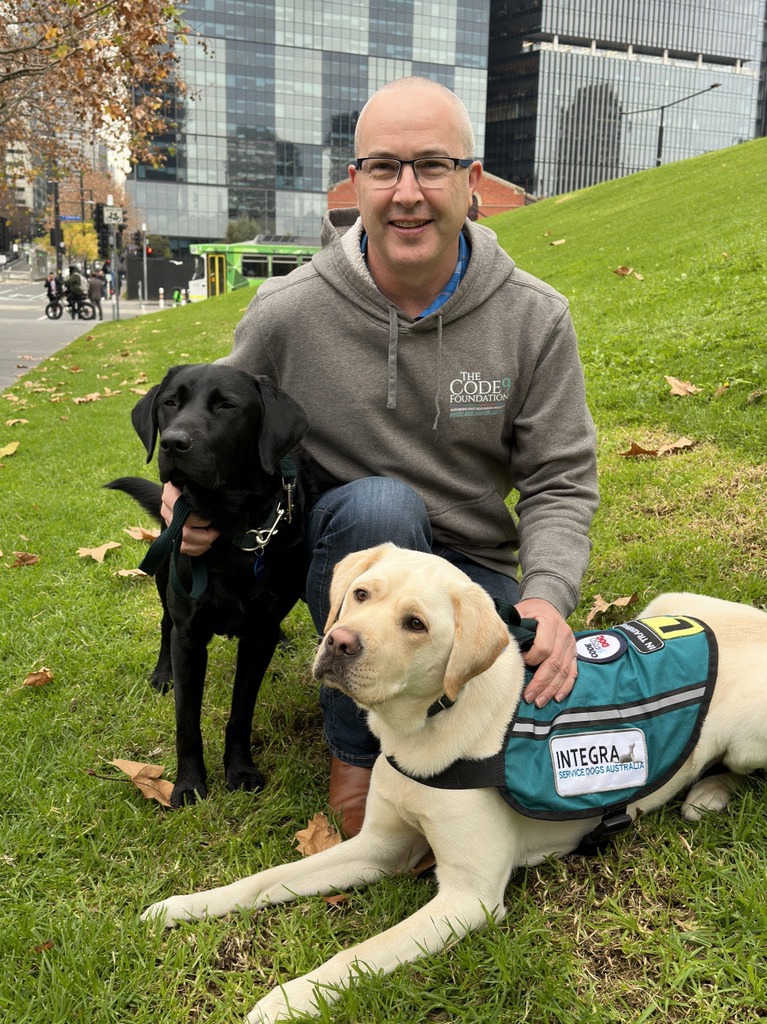
Mark Thomas felt completely alone when he experienced a “complete mental breakdown” more than a decade ago.
After 21 years of policing, his resilience was simply worn away after he attended a heavily traumatic call-out on April 8, 2003.
“I remember that exact day,” Thomas told 9news.com.au.
Looking back at that day, and the years following the incident, the 52-year-old said there were “so many red flags” regarding his mental state.
”Something was markedly different to any other deceased persons or trauma scene. I hadn’t been to that type of (suicide) before,” he said.
“When I looked at the deceased, I felt a physical reaction in my chest.”
Thomas lives with PTSD, depression and anxiety, and now understands exactly what he was feeling.
But it wasn’t always that way.
“I was in my early thirties and mental health literacy wasn’t really big then,” he said.
“I had no knowledge and was very naive, I didn’t do anything about it.
“There was something about that scene where it was completely (different) compared to other scenes I’ve been to regarding trauma.”
He continued to work as a uniform officer in the decade following the incident, before moving to a detective and back to sergeant.
But something deeper was bubbling away within the 52-year-old, and it all came to a head in February 2013.
“My symptoms just skyrocketed and that was due to my resilience being completely worn away,” he said.
“So that culminated in me having what my first treating psychiatrist said, ‘a catastrophic loss of self’.
“That looks like a mental breakdown… It was a massive anxiety attack.
“I was (having) flashbacks. I would be asleep on the couch and then I’d go to bed and put my head down and bang, transported back to the scene and no-one’s sleeping with that bouncing around in the head.”
Thomas admitted himself to hospital that month, after completely disassociating himself with his friends and family.
“When I had that catastrophic loss of self, my normal human brain shut down, but my policing brain kicked in. I spoke to my wife and I said ring welfare,” he said.
“I know what it’s like to grow up without a parent. So I couldn’t let my two little ones grow up without a parent.
“I (was) trapped in this little weird space of not wanting to leave but (I couldn’t) take my life.”
He was soon diagnosed with PTSD, depression, and anxiety.
‘I thought not one could understand. But that was rubbish’
There are more than 370,000 emergency services workers in Australia and it is estimated at least one in 10 will develop PTSD, according to the Black Dog Institute.
Emergency services workers are also twice as likely to experience a mental health condition than the general population, in large part due to the high risk of trauma exposure at work.
Despite PTSD being so prevalent among emergency services workers, Thomas said he felt “intensely alone” in the days, weeks, and months following his diagnosis.
“I was sitting in there thinking no one else could know what I’m going through here, which is complete rubbish,” he said.
That’s when he thought about creating a peer support group for local police officers on Facebook.
“I thought once I get back to work full time, I’m gonna start a little support group for coppers that if they’re struggling or newly diagnosed,” he said.
“So they don’t feel alone.”
‘Glimmer of hope’ for thousands
After completing his return-to-work program, the Code 9 Foundation was officially established in 2015.
The group started with 30 members and has since expanded to a membership of over 3200 professional first responders across Victoria.
“We can do anything,” Thomas said.
“We’re police professionals, fire paramedics and triple zero operators.
“We do anything to ease the load and put a smile on their faces. If we can put a smile on someone’s face while they’re in the darkness, that’s brilliant because I know what it’s like to be in complete black, which is an entirely bizarre feeling.
“Then to have a glimmer of hope that’s as powerful as anything can be.”
The foundation supplies meal packages to members, they send families on respite breaks and also fund and provide trained and accredited assistance dogs.
Just last week, two new sponsored assistance dogs joined Code 9, thanks to the team at Integra Service Dogs Australia.
Today marks National PTSD Awareness Day, and by sharing his story, Thomas hopes many other police officers and emergency service workers can see a life beyond the diagnosis.
“I’m a copper for eight hours a day. I’m a husband, father, and a cricket coach. I also run a charity,” he said.
“PTSD, depression and anxiety don’t define who I am. That’s just something that sits in my back pocket and I’ve got to manage it.”
Readers seeking support can contact beyond blue on 1300 22 4636 or Lifeline on 13 11 14.
links to content on ABC
9News





